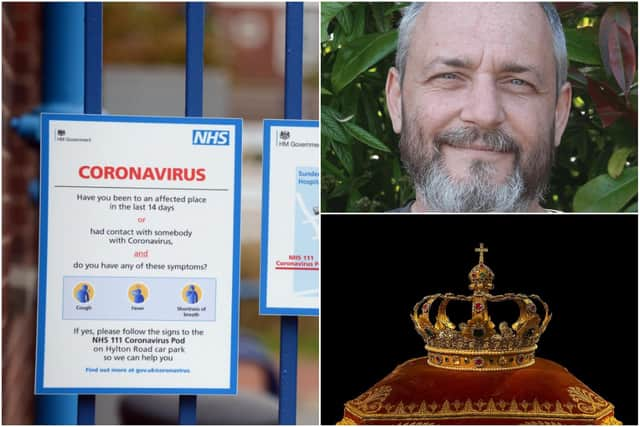What's in a name? Sunderland expert explains how coronavirus got its regal name
and live on Freeview channel 276
Now a University of Sunderland senior lecturer has explained the origins and meaning of the word corona, showing the virus has nothing do with the Mexican beer or Cuban cigar brands Corona.
Dr Mike Pearce, a member of its English Language department, has set out it is how the virus looks down the lens of a microscope which led to its name.
Advertisement
Hide AdAdvertisement
Hide Ad

He said: “Corona is Latin for ‘crown’, ‘wreath’, ‘halo’. In modern languages directly descended from Latin it broadly retains this form.
“The word is first recorded in English in the Anglo-Saxon Chronicle, probably as a ‘borrowing’ from French in the late 11th Century.
“But over time we see a change in form – the vowel in the first syllable is eventually lost through a process which linguists call ‘syncope’, resulting in crown.”
He noted echoes of its Latin form can be found in words linked to headwear, such as coronation and coronet.
Advertisement
Hide AdAdvertisement
Hide AdIts use in science came as the English vocabulary expanded as new words were needed during the 16th and 17th centuries.
It has been used to describe a range of crown or halo-like concepts, such as a circle of light around the moon or sun to its links to ‘coronary’ through the arteries surrounding the heart.
The term coronavirus was coined by British scientists June Almeida and David Tyrrell in 1966 as they identified a new family of human respiratory viruses to which the strain which causes Covid-19 belongs.
In 2002, Tyrrell recalled how imaging of the particle through an electron microscope revealed a ‘fringe’ of petal-like protrusions which he thought resembled a halo – corona.
Advertisement
Hide AdAdvertisement
Hide AdDr Pearce added: “It is, I think, a beautifully precise, even poetic name. But the poetry is tempered by the fact that it denotes a relentless, devastating scourge.
“Despite its etymological interest, corona is a word we’d all like to hear a lot less of.”
Mike’s extensive research on the language and culture of our region is archived at The Dialectological Landscapes of North East England website.